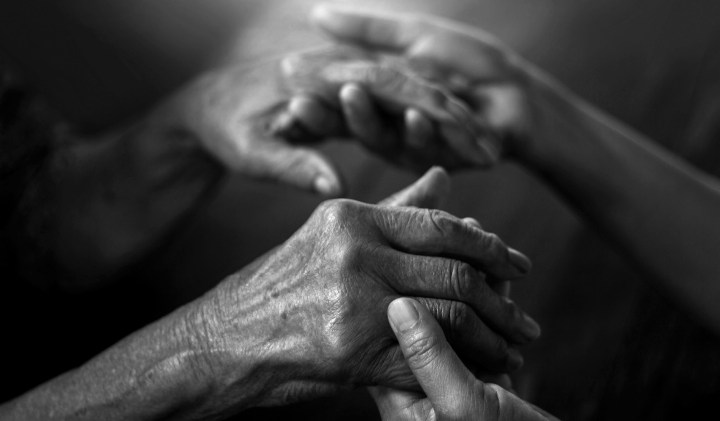PALLIATIVE CARE OP-ED
Milestone conference puts inclusive and sustainable care in the spotlight

A Palliative Care Conference is taking place at The Vineyard Hotel in Cape Town. Having opened on Wednesday 26 April, it will end on Saturday 29 April and is the largest and most diverse gathering of people interested and working in palliative care from public and private sectors and NGOs ever seen in this country.
A milestone event, this first-of-its-kind conference is a collaboration between three organisations, namely Palliative Care for Children South Africa (PatchSA), the Association of Palliative Care Practitioners of South Africa (PalPrac) and the Hospice Palliative Care Association of South Africa (HPCA).
Palliative care is the physical, psychological, social, and spiritual care provided by a multidisciplinary team of experts to patients of any age diagnosed with a life-threatening or life-limiting illness, and their families, ideally from the point of diagnosis.
Despite a paucity of research in the field, the breadth and depth of presentations on the programme speaks not only to the rich diversity of cultures in our country but also the need to be resourceful in the face of enormous challenges and resource constraints.
The conference theme, Palliative Care is Everyone’s Business, conveys the message that palliative care is not just the domain of the specialist or dedicated NGOs, but something that can and should be implemented at all levels and in all healthcare settings.
Fewer than 5% of children in need of palliative care in SA can access it
In a research article Professor Liz Gwyther of the University of Cape Town estimates that only 18% of those needing palliative care in South Africa have access to it. It is an even more gloomy picture for South African children, where research carried out by UNICEF in 2013 estimated that fewer than 5% of more than 800,000 children needing palliative care, can access it.

Research conducted in collaboration with UNICEF estimated the number of South African children in need of palliative care at 800,000 – with fewer than five percent getting it. Experts believe that figure is closer to one million today. (Photo: netdoctor.co.uk/Wikipedia)
The sub-themes for the conference are relevance (contextually and culturally), inclusivity (all diseases, all ages) and sustainability. The programme includes oral presentations, panel discussions, pre-conference strategic planning meetings, pre-conference workshops, in-conference AGMs, research hubs, and meetings to discuss how to navigate medical aids during lunch breaks and more. There will also be an early morning yoga class on Saturday to teach professionals how to release their grief.
The 400-plus delegates, from across a broad spectrum of related and allied healthcare disciplines, include integrative therapists, counsellors, social workers, doctors, nurses and specialists, among others.
The conference also gives patients and families the stage and will include the parents of children who have died, who will talk about the importance of those providing care to include them in decision making and the need for an approach to treatment that embodies compassion and empathy.
The early delivery of palliative care reduces unnecessary hospital admissions and the use of health services. Research undertaken by the South African Medical Research Council in 2017 published in a paper titled Saving Lives, Saving Costs: Investment Case for Home Based Care workers in South Africa, shows that the public health sector could save as much as R3,3,-billion per year if only 50% of those who require palliative care were cared for at home, rather than in hospitals.
In previous years the palliative care sector rallied to create an aspirational palliative care policy that was approved by government in 2017 but implementation has been slow, primarily due to a lack of government funding and an unequal distribution of services across the provinces.
WHO to fund development of guidelines for adult and paediatric palliative care
Celebrating the positives, WHO has been involved more recently in National Department of Health efforts and are funding the development of guidelines for both adult and paediatric palliative care, which is a step in the right direction.
In addition, the appointment of a National Coordinator for Palliative Care in 2020 has led to an increased focus on medicine availability, revised Essential Drugs Lists, morphine monitoring, training, and a few public sector posts for adult palliative care, particularly nurses. However, there is almost no provision of public sector posts for paediatric palliative care.
The term of the first National Policy Framework and Strategy for Palliative Care ended in 2022 and we are now on an extension, in other words, “borrowed time”. It’s time to go back to the drawing board and develop something more realistic and implementable that’s monitored more closely.
Access to palliative care is a basic human right that all of us are likely to require at some point in our lives, either for ourselves or for a family member. It is clearly relevant, and therefore it should be incumbent on all of us to work together to ensure that palliative is also inclusive and sustainable. DM/MC
Drs Julia Ambler (Palprac), Michelle Meiring (PatchSA) and Ewa Skowronska (HPCA) are co-organisers of the conference.




















 Become an Insider
Become an Insider
Comments - Please login in order to comment.